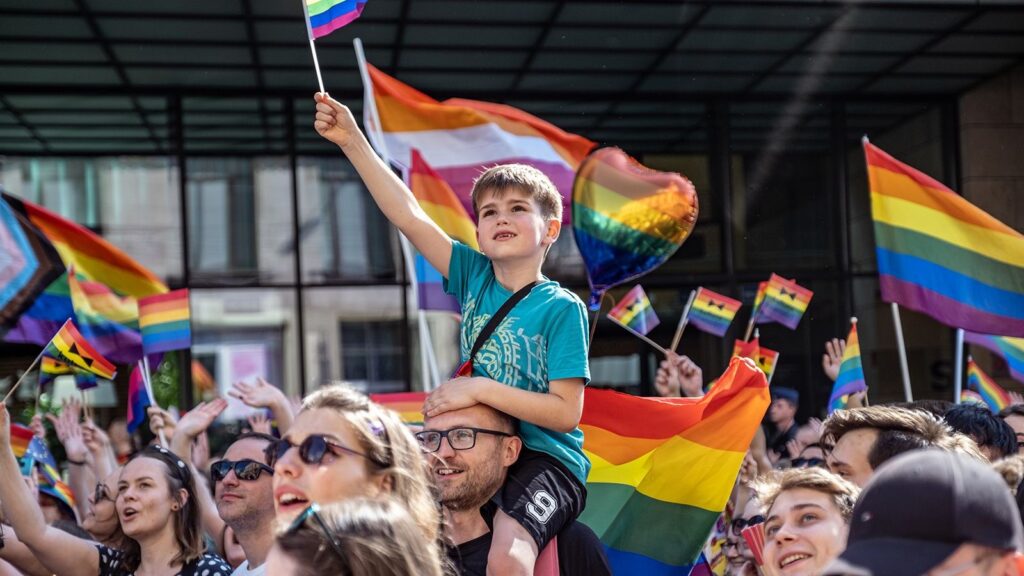
Parents or guardians of teenagers can help them build healthy relationships by providing support and resources that help them navigate aspects of intimate relationships. Professionals offering teen relationship advice can help adolescents know how to handle challenges they might face. Here are some ways to support LGBTQ+ teens in relationships:
Support and Accept Them for Who They Are
To make LGBTQ+ teens feel valued and accepted, use the names and pronouns they prefer, even when you are not speaking to them. If you mispeak when addressing them, correct yourself quickly to acknowledge the mistake and demonstrate validation. When discussing someone they are dating, avoiding terms like boyfriend or girlfriend and using the term “partner” helps avoid misrepresentation. Parents, guardians, or friends can establish themselves as LGBTQ+ allies by attending pride events or celebrating their coming out. If teens want to share their identity with other family members, they should be able to share the information at their own time without pressure.
Educate About Healthy Relationships
Whether teens are in romantic relationships or friendships, educating them about red and green relationship flags is beneficial. Some professionals offer teen relationship advice online. This enables adolescents to learn how to set healthy boundaries so both partners can feel heard and respected.
Teaching adolescents to say yes or no to physical touch or emotional conversations demonstrates the significance of consent in relationships. Educating teens about asking for personal space when they need it also helps them understand they can act independently from relationships. While dating or establishing friendships, teens can be encouraged to reflect on how the relationship makes them feel.
Allow Them to Talk Openly
When LGBTQ+ teens have concerns or conflicts with their partners, listen to them as they open up before offering solutions. Teens are often experiencing these challenges for the first time and may be seeking advice or emotional validation. If a teenager has a story they want to share with you, allow them to finish talking, instead of interrupting. This helps them feel heard and understood and creates trust between parents and children. Once you know what happened, respond with kindness and avoid sharing the information with other people.
Connect Them to Supportive Communities
Connecting LGBTQ+ teens to local LGBTQ+ youth groups, clubs, or events allows teenagers to meet other young people going through similar experiences. Some websites offer professional support to teens, whether they are experiencing hard times or need someone to talk to. Through phone calls or online chats, teens can receive help and get solutions to their relationship problems. Professionals may offer coping strategies and guide them in navigating friendships and romantic relationships.
Seek the Right Teen Relationship Advice
With expert relationship advice, teens can identify whether they are in healthy relationships and what to do if they are not. Specialists help teenagers know what dating safety is and what to do if they feel unsafe or pressured in a relationship. Call or text a trusted organization today for help if your teen has dating questions.






